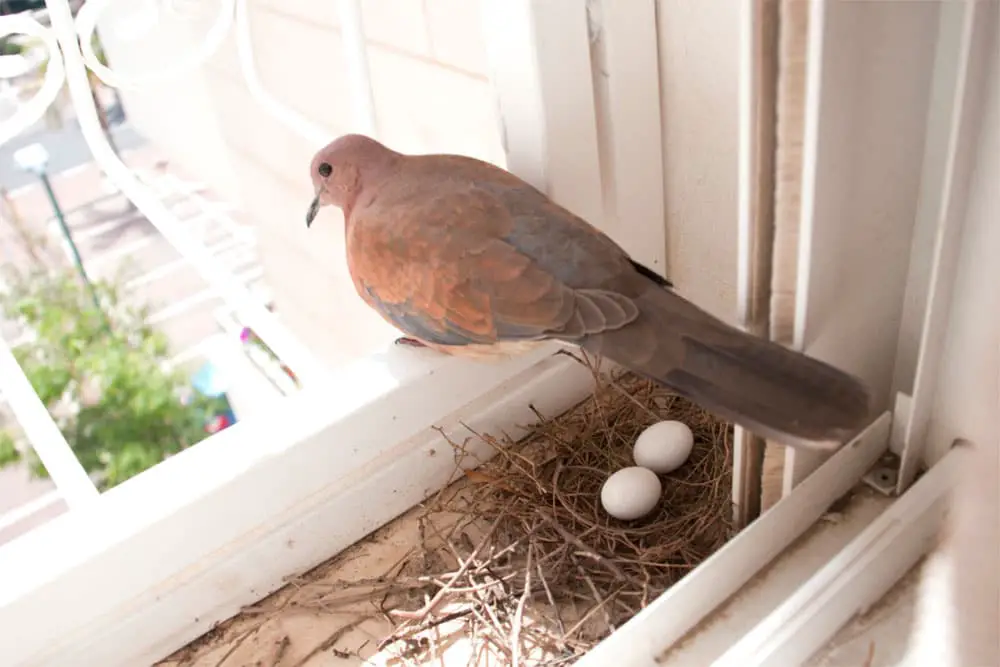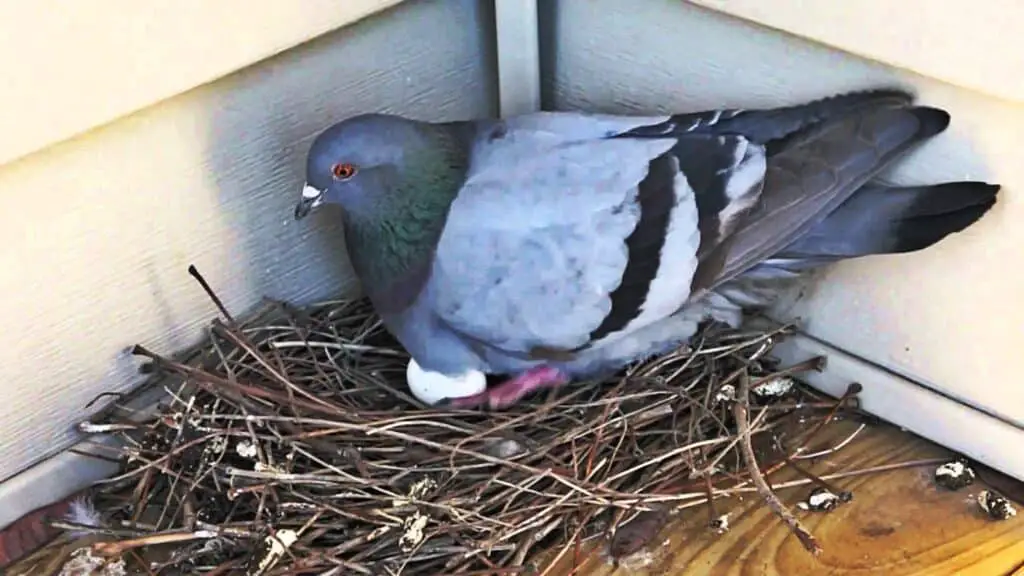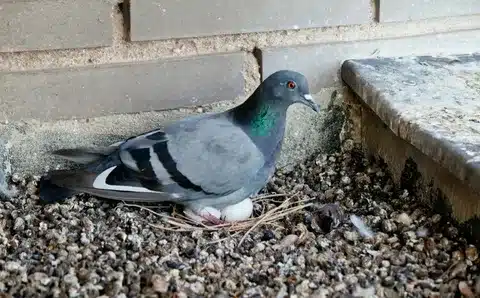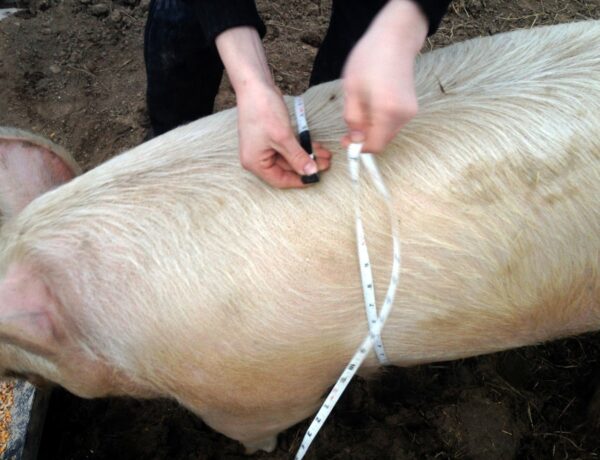Introduction
How Long Do Pigeon Eggs Take To Hatch: Pigeons, with their distinctive cooing calls and graceful flight, are a common sight in urban environments around the world. These birds are known for their ability to adapt to diverse habitats, often coexisting with humans in cities and towns. One fascinating aspect of pigeon behavior is their reproductive cycle, specifically the incubation period of their eggs.
If you’ve ever wondered how long it takes for pigeon eggs to hatch, you’re about to embark on a journey into the world of avian reproduction. In this article, we will explore the intricate process of pigeon egg incubation, shedding light on the factors that influence hatching times and the remarkable parental care exhibited by these birds during this crucial phase of their life cycle. So, let’s delve into the captivating world of pigeon eggs and discover just how long it takes for these tiny miracles to hatch.
We will explore the intricate details of how long it takes for pigeon live eggs to hatch and the various factors that influence this duration. We’ll delve into the behavior and dedication of pigeon parents during the incubation period, showcasing their remarkable instincts and nurturing capabilities. Whether you’re a curious observer of these city-dwelling birds or simply interested in the wonders of nature, understanding the timeline of pigeon egg hatching will provide you with a deeper appreciation of the avian world that thrives amidst us. So, let’s embark on this journey into the realm of pigeon reproduction and discover the secrets behind their eggs’ transformation into new life.

Do pigeons sit on their eggs all the time?
Once the simple nest is built, the female lays an egg and then another a day or so later. The incubation period for common pigeons is 17 to 19 days. The female sits on the egg from late afternoon through the night until about 10AM. The male then takes over and does the day shift.
Pigeons, like many bird species, do not sit on their eggs constantly, but they do spend a significant amount of time incubating them. The incubation process involves keeping the eggs warm to facilitate embryo development. Here’s how it typically works for pigeons:
Shift System: Pigeon parents take turns incubating the eggs. One parent will incubate the eggs while the other goes out to forage for food, stretch their wings, and take care of other essential tasks.
Incubation Period: The incubation period for pigeon eggs usually lasts between 17 to 19 days. During this time, the adult pigeons alternate between incubating the eggs and caring for themselves.
Temperature Regulation: Pigeons have a unique way of regulating the temperature of their eggs. They use a patch of skin on their chest called the “brood patch,” which lacks feathers and is highly vascularized. By pressing the brood patch against the eggs, they can transfer heat to keep the eggs at the optimal temperature.
Protection: While incubating, pigeons also provide protection to their eggs, shielding them from predators and adverse weather conditions.
Feeding: Pigeon parents leave the nest periodically to find food, ensuring they maintain their own nourishment during this critical period.
Communication: Pigeon pairs often communicate with soft cooing sounds and gentle movements, which help maintain their bond and coordinate shifts in incubation duties.
How long does a mother pigeon sit on her eggs?
Around 18 days
Pigeons will start their life in an egg. The mother pigeon will sit on these eggs incubating them for around 18 days. Usually only 2 eggs are laid at a time due to the size the babies can reach before it’s time for them to leave the nest.
Pigeon parents typically take turns incubating their eggs, and the incubation period for pigeon eggs usually lasts between 17 to 19 days. During this period, both the mother and father pigeon will share the responsibility of incubation. They take shifts to keep the eggs warm and protected. Each shift can last for several hours, during which one of the parents will sit on the eggs while the other may go off to forage for food, preen, or engage in other essential activities.
The exact duration of each shift can vary depending on various factors, including the weather conditions, the experience of the parents, and the stage of development of the eggs. However, it’s common for pigeon parents to switch roles roughly every 6 to 12 hours, ensuring that the eggs receive consistent warmth and protection throughout the incubation period.
This cooperative incubation behavior is essential for the successful development of pigeon embryos and demonstrates the dedicated care provided by both the mother and father pigeons during this critical phase of their reproductive cycle.
How long do pigeon eggs take to fly?
Don’t worry — baby pigeons grow up very quickly! The time between when they hatch from the egg to when they fly away from their nest is usually less than 4 weeks.
Pigeon eggs do not fly; they are not capable of flight at any point in their development. Pigeon eggs are stationary objects, and their purpose is to incubate and protect the developing embryos until they hatch into baby pigeons (squabs).
Once the incubation period is complete, which typically lasts between 17 to 19 days, the baby pigeons will hatch from the eggs. These newly hatched squabs are entirely dependent on their parents for nourishment and care, and they are not capable of flying. Pigeon chicks usually remain in the nest for several weeks, gradually growing and developing their feathers and flight capabilities.
It’s important to note that the ability to fly is a skill acquired by young pigeons as they grow and develop over time. They will fledge, or leave the nest, when they are sufficiently developed to fly and forage for food on their own, which typically occurs several weeks after hatching.
Can we touch a pigeon egg?
Touching an egg (or chick) or moving it within the nest will make no difference to the parents. The idea that birds will reject an egg or chick due to human scent is an old wive’s tale and has been thoroughly debunked.
It is generally best to avoid touching pigeon eggs or any wild bird’s eggs. There are several reasons for this:
Hygiene and Safety: Wild bird eggs, including pigeon eggs, may carry bacteria or parasites on their shells. Handling them can transfer these microorganisms to your hands, which can be a potential health risk. Additionally, the oils on your skin can disrupt the protective coating on the eggs, which helps prevent moisture loss and contamination.
Stress to the Birds: Pigeons are sensitive to disturbances around their nests. Handling their eggs can cause stress to the parent birds and may lead them to abandon the nest or the eggs.
Legal Protection: In many regions, it is illegal to disturb the nests or eggs of wild birds, including pigeons, without proper permits. Interfering with bird nests and eggs can result in legal consequences.
If you come across a pigeon nest or pigeon eggs, it is best to observe from a distance and avoid any unnecessary disturbance. Enjoying wildlife in its natural habitat should be done with respect for the animals and their needs. If you have concerns about a nest or injured bird, consider contacting a local wildlife rehabilitation center or bird conservation organization for guidance on how to handle the situation appropriately and in compliance with local laws and regulations.
Is it good if pigeons lay eggs on my balcony?
Pigeon Laying Eggs On The Balcony – Vastu Tips – Bejan Daruwalla
It is generally believed that it is inauspicious to have a pigeon’s nest in the house. Nesting on the balcony or terrace of the house means that he has brought bad luck with him. It should be removed promptly in this situation. Otherwise, the person has to face many problems.
Whether it is good or not for pigeons to lay eggs on your balcony depends on your perspective and individual circumstances. Here are some considerations to help you decide:
Pros:
Natural Beauty: Many people find joy in observing birds and their nesting behaviors up close. Having pigeons lay eggs on your balcony can provide a unique opportunity to witness the natural world in action.
Educational Value: If you have children or a strong interest in wildlife, having a pigeon nest on your balcony can be an educational experience. You can learn about pigeon behavior, the incubation process, and the growth of the chicks.
Contribution to Urban Wildlife: Pigeons are a part of the urban wildlife ecosystem. Allowing them to nest on your balcony can contribute to the local bird population, especially in areas with limited natural nesting sites.
Cons:
Mess: Pigeons can create a mess with their droppings, feathers, and nesting materials. This can lead to maintenance and cleaning challenges on your balcony.
Noise: Pigeons can be noisy, especially when they are cooing or when their chicks are demanding food. This noise can be bothersome if you have a low tolerance for it.
Health Concerns: Pigeon droppings can carry diseases and parasites that may be a health risk to humans. It’s important to take precautions if pigeons are frequenting your balcony.
Nesting Damage: Pigeons may cause damage to your balcony, including scratching surfaces, displacing objects, and creating nests that could obstruct walkways.
Do pigeons sleep on their eggs?
Pigeons don’t sleep in their nests.
If you had to guess where birds sleep at night, you might say their nests. It’s not a bad guess, but it’s not correct. Birds only use their nests to keep their eggs and newly-hatched babies warm, secure, and safe, but birds do not sleep in their nests once the sun sets.
Yes, pigeons do sleep on their eggs during the incubation period. Incubation is a critical part of the reproductive process for pigeons, and it involves keeping the eggs warm and protected to facilitate embryo development. Pigeon parents take turns incubating the eggs, ensuring that they are consistently maintained at the right temperature.
When a pigeon is incubating its eggs, it typically sits on the nest, covering the eggs with its body. The parent pigeon will use a specialized patch of skin on its chest called the “brood patch” to transfer heat effectively to the eggs. This brood patch has fewer feathers and is highly vascularized, making it an ideal heat source for incubation.
Pigeon parents alternate shifts, with one bird incubating the eggs while the other may go off to forage for food, preen, or rest. This cooperative incubation behavior helps ensure that the eggs receive continuous warmth and protection, which is crucial for the successful development of the embryos within the eggs.
What happens if pigeon eggs don’t hatch?
The hatching time for a pigeon’s egg is 17 to 19 days. The eggs may be infertile or dead or it was hatchable but didn’t hatch because no bird sat on those eggs. You can wait for 2-3 more days and you can dispose of those eggs. It’s possible that the pigeons are just bad parents.
If pigeon eggs do not hatch, it can be due to several reasons, and the outcome can vary depending on the circumstances. Here are some possible scenarios and reasons for eggs not hatching:
Infertile Eggs: Sometimes, the eggs laid by pigeons may be infertile, meaning they were never fertilized by a male pigeon. In such cases, the eggs will not develop into embryos and will not hatch. This is a natural occurrence and is part of the normal reproductive process.
Inadequate Incubation: Proper incubation is crucial for the development of pigeon embryos. If the eggs are not consistently kept at the right temperature or are left unattended for extended periods, they may not hatch. Pigeon parents typically take turns incubating the eggs, but if they are disturbed or stressed, they may not provide adequate care.
Environmental Factors: Environmental conditions can play a significant role in egg viability. Extreme temperature fluctuations, humidity levels, or other adverse weather conditions can negatively impact the development of pigeon embryos.
Disease or Parasites: Pigeon eggs and nests can be vulnerable to diseases and parasites. Infections or infestations in the nest can affect the health of the eggs and prevent them from hatching.
Predation: Nesting pigeons may face threats from predators, such as birds of prey or rats, which can damage or destroy the eggs.
If pigeon eggs do not hatch, the adult pigeons will eventually abandon the nest. They may remove the unhatched eggs from the nest, or they may leave them in place. Over time, the unhatched eggs may break down and decompose, returning nutrients to the environment.
Can pigeon eggs hatch without a father?
For the eggs to hatch successfully, the female pigeon is required to mate with the male pigeon. It is the sperm from the male that makes the eggs possible to be hatched. And only then can we expect baby pigeons to come out of the eggs.
No, pigeon eggs cannot hatch without fertilization by a male pigeon, also known as a cock. In order for pigeon eggs to develop into embryos and eventually hatch into squabs (baby pigeons), the eggs must be fertilized by a male pigeon’s sperm.
Pigeons, like other birds, have a reproductive system that requires the genetic material from both a male and a female to produce viable offspring. The process typically involves the following steps:
Mating: Female pigeons (hens) and male pigeons (cocks) engage in mating behavior. During mating, the male transfers sperm into the female’s reproductive tract.
Fertilization: Once the sperm is inside the female’s reproductive tract, it fertilizes the eggs as they are laid. The eggs are fertilized internally before they are laid.
Egg Laying: After fertilization, the female pigeon lays the eggs in a nest. The fertilized eggs contain the genetic material from both the male and female, which is essential for the development of the embryos.
Incubation: The pigeon parents take turns incubating the eggs, keeping them warm until they hatch.

Conclusion
The journey of pigeon eggs from their initial formation to hatching is a testament to the remarkable adaptability and resilience of these urban-dwelling birds. The incubation period, which typically spans 17 to 19 days, represents a critical phase in their life cycle. Throughout this time, pigeon parents display unwavering dedication, taking turns to diligently keep their eggs warm and protected from potential threats.
Understanding the timeline of pigeon egg hatching not only sheds light on the natural wonders occurring right in our midst but also underscores the importance of preserving the habitats and environments where these birds thrive. As we marvel at the intricacies of pigeon reproduction, we are reminded of the intricate web of life that surrounds us, even in the heart of bustling cities.
So, the next time you hear the gentle cooing of pigeons bird or come across their nests on a city rooftop, take a moment to appreciate the remarkable journey that begins with those seemingly unassuming eggs. It’s a testament to the enduring cycle of life and a testament to the beauty of nature that persists, even in the most unexpected of places.




No Comments